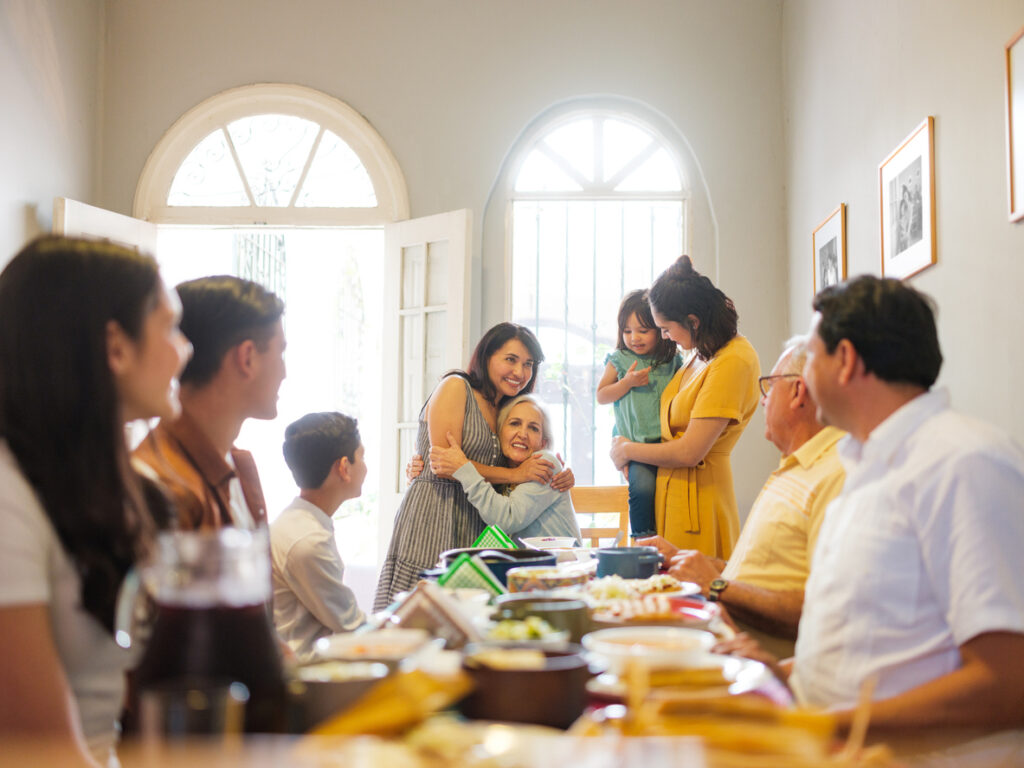Understanding blended families: A modern family structure
A Blended Family is a family unit formed when two partners come together with children from one or more of their previous relationships. In England & Wales, there are an estimated 781,000 blended families – that’s 1 in 3 families in the UK, so these days it is not an uncommon type of family unit.
Blended families often bring joy and diversity to family life, but also complexity and unique legal considerations. As more couples merge lives with children from previous relationships, careful legal planning ensures financial protection, clarity around parental responsibility, and peace of mind when unexpected events occur.
We can help to guide blended families through tailored agreements, estate planning, and even dispute resolution, empowering loved ones to focus on building strong relationships rather than navigating legal uncertainty.
Why is estate planning important for blended families?
It is highly important for most blended families to undertake an estate planning exercise to ensure your wishes are met. Steps can be taken to ensure that the surviving partner is provided for if one of them dies, while balancing that individual’s wishes to ringfence part of their estate for their respective children.
Having these early, albeit difficult conversations surrounding sensitive topics as a family unit can help to manage expectations, provide peace of mind, and identify appropriate strategies to manage the estate planning process.
The role of a well-drafted will
A well-drafted Will is the cornerstone of the estate planning exercise. Without one, the Intestacy Rules determine what happens with someone’s estate, and who is entitled to administer it, which may be very different to an individual’s actual wishes.
This is important for everyone, but especially for blended families as these rules will often largely favour a surviving spouse or civil partner, on whose death the estate may entirely pass to their own children, without any share of estate to the initial partners children. On the other hand, some may wish to provide directly to their stepchildren, which does not happen automatically and would need to be directly provided for in a Will.
Very often, testators will need to walk a tightrope and a fulfil a balancing act between their testamentary freedom, and the needs and expectations of not only their new partner or spouse, but also both natural and stepchildren.
Solicitors frequently work in tandem with financial advisors, who are able to establish financial planning strategies involving investments, pensions and life insurance policies to work towards a common goal. This multidisciplinary approach ensures that the full ambit of an individual’s family and financial life is given proper consideration.
Utilising trusts in estate planning for blended families
How family investments and homes are held can profoundly impact inheritance and financial security.
- Jointly-held investments will pass to a surviving account-holder, regardless of what a deceased’s Will tries to direct.
- Properties held as “joint tenants” pass in a similar way.
- Properties held as “tenants in common” do not; instead, a person’s share of their ownership passes via their Will, or the Intestacy Rules in the absence of a Will.
Many jointly-held homes in blended families will be held as tenants in common to ensure that each party’s respective share can pass to their own children or into a trust.
Trusts are commonly used as a tool in this scenario, for example:
- Life Interest trusts can provide for a deceased’s share of the home to be held for the benefit of the survivor to give them the security of a roof over their head, but ultimately ringfences this share so that on the survivor’s death, this then passes to the first-to-die’s children. This can be a very effective method of being able to “have your cake and eat it”.
- Other trusts can absorb an entire estate if required, again providing for the survivor, but coupled with powers for the Trustees to exercise a discretion to make payments to children or stepchildren – for example, for educational or business needs, or to help them with a first step on the property ladder.
Your choice of Trustees is critical when preparing a Will, as they will be potential be in a position of great power and responsibility. A non-binding letter of wishes can be helpful to provide moral guidance to Trustees. Different trusts are subject to differing tax treatments on death and on an ongoing basis, so it important that this is given consideration at the right time.
Minor children
Legal parenthood shapes the decision-making authority in respect of minor children.
- Birth parents will always have parental responsibility.
- A married stepparent will only assume parental responsibility of that child if a formal agreement is undertaken – it does not happen automatically.
- Adoption would also require formal steps to be taken.
A parent with minor children should always ensure they name a guardian or guardians in their Will, as their wishes are given serious consideration, and may help that proposed guardian to secure a parental responsibility order.
Dispute resolution
Even well-structured agreements can face challenges, especially after a death at a highly emotional time. Early intervention with a solicitor or through alternative dispute resolution (ADR) methods can preserve relationships, reduce legal costs, and prevent the financial erosion of an estate. We have experts in both family law and contentious probate who can assist with this process.
Frequently asked questions
Do stepchildren automatically inherit from a stepparent’s estate?
No. Stepchildren do not inherit automatically, they must be specifically included in a Will or trust.
What happens if I die without a Will in a blended family?
The Intestacy Rules apply, which may mean your estate passes entirely to your spouse or civil partner, and ultimately to their children, which can leave your own children excluded.
How can I make sure my spouse is provided for but also protect my children’s inheritance?
Trusts and tenants in common ownership can strike the balance, providing security for your partner while protecting your children’s future share.
Can my new spouse and I create a joint Will?
Yes, but there are different options each with advantages and drawbacks. It is important to take advice from a solicitor to help assess the best option for you and your family.
Do I need to update my Will after remarriage?
Yes. Marriage revokes a Will unless it was made in contemplation of that marriage, and the Will contains a specific clause to that effect.
Who can be a guardian for my children if I pass away?
You can appoint a guardian in your Will. This isn’t automatically binding but is given serious weight by the courts.
What if disputes arise between my children and my new partner?
Solicitors and ADR specialists can help manage disputes constructively, reducing conflict and protecting the estate’s value.
Final thoughts
Blended families weave together histories, hopes, and responsibilities. A solicitor’s expertise can convert uncertainty into clarity by drafting bespoke documents, securing children’s rights, and safeguarding assets. By embracing proactive legal planning, blended families can focus on what matters most: nurturing relationships, creating lasting memories, and building a secure foundation for generations to come. Contact our team to explore the right estate planning approach for you.






